Bill Reinsch
Bill Reinsch holds the Scholl Chair in International Business at CSIS and is a senior adviser at Kelley, Drye & Warren LLP. He is also an adjunct assistant professor at the University of Maryland School of Public Policy, teaching courses in globalization, trade policy, and politics. Previosuly, he served for 15 years as president of the National Foreign Trade Council. He concurrently served as a member of the U.S.-China Economic and Security Review Commission.
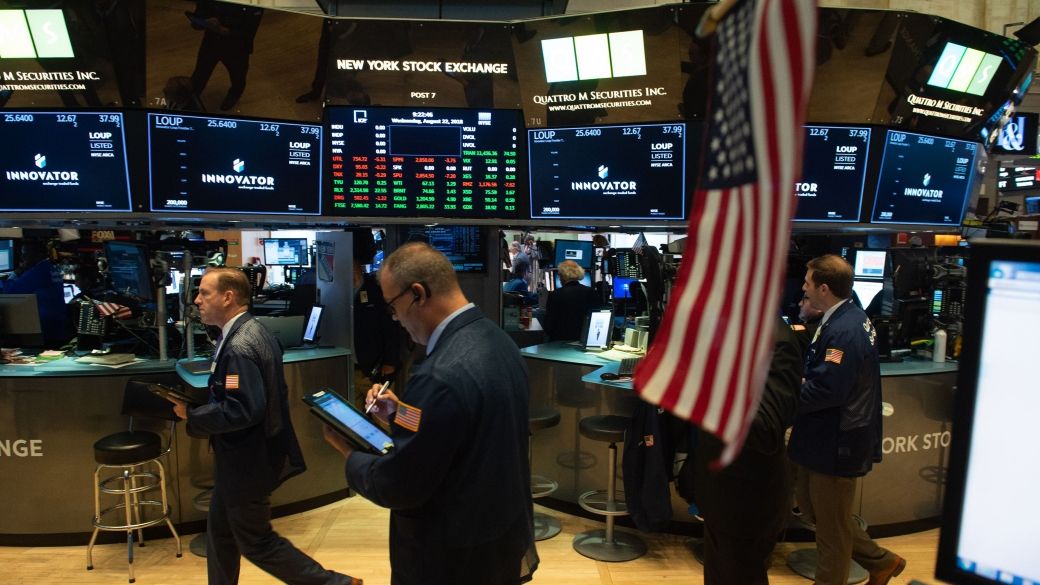
Structural Change or Blip?
Are political parties realigning on trade in what may well turn out to be a long-term structural change?
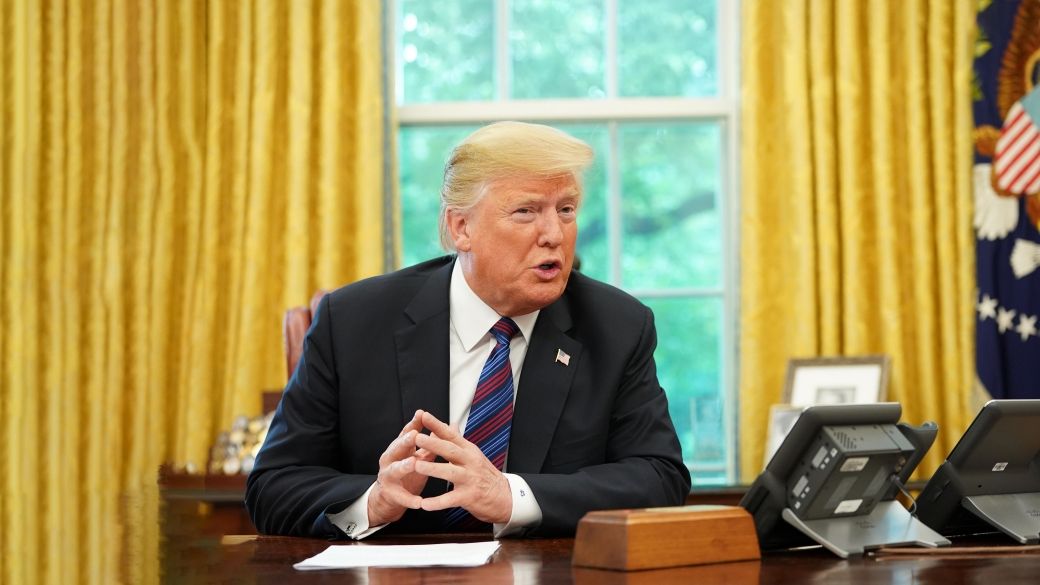
Six Months Later: An Evaluation
Any evaluation must look both at the policy and its implementation—regular readers of this column may remember the story of the grasshopper and the ant. If the latter is flawed, then the merits of the policy end up being little more than a footnote.
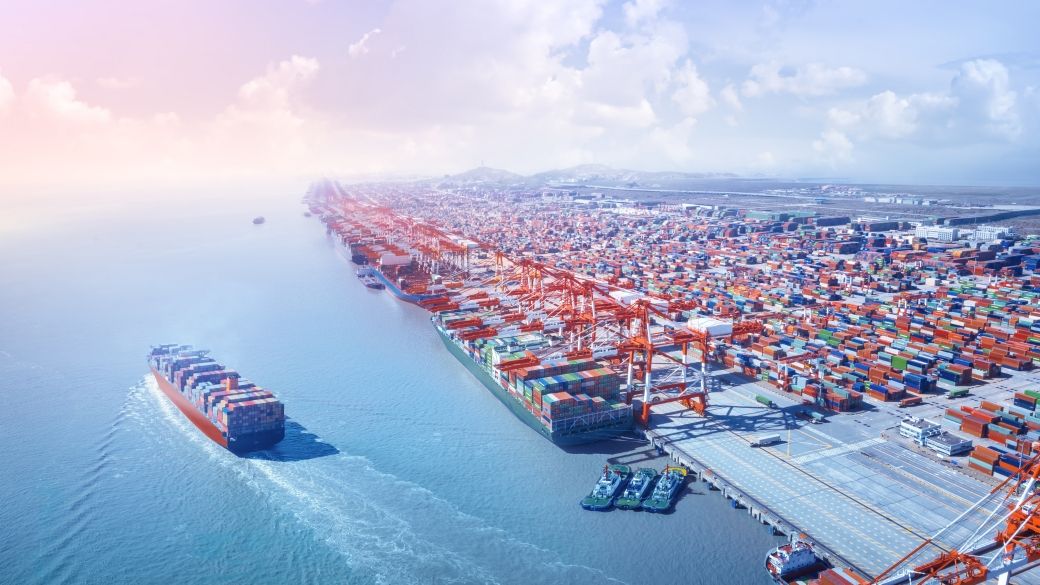
Midterm Election Results—What Did It Mean for Trade?
This week’s topic is obvious. The United States had midterm elections last week. What did it mean for trade? That is really two questions: what did the voters say about the president’s trade policy and what, if anything, is likely to change when the new Congress convenes in January?
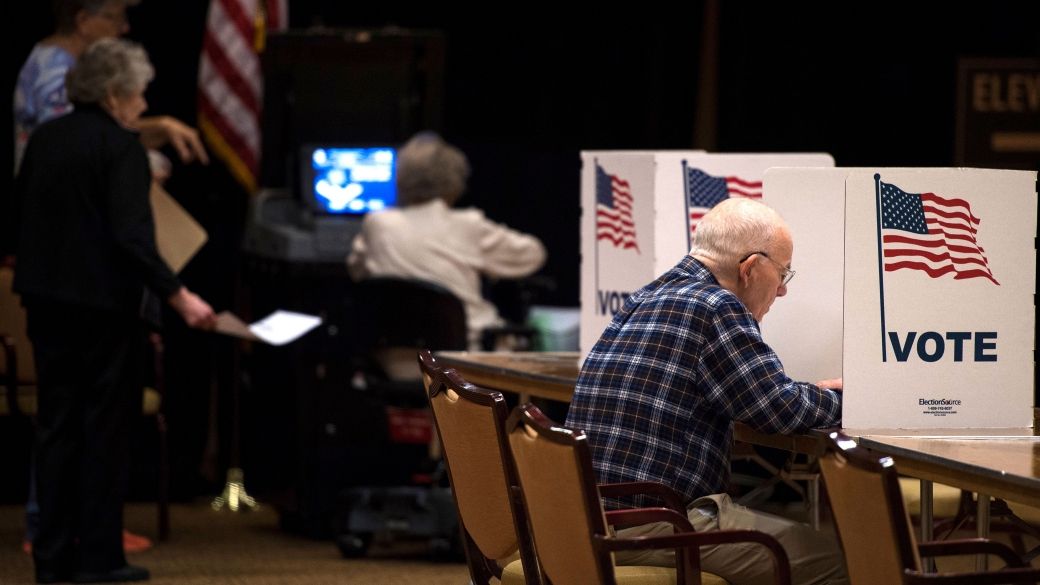
Will the Election Results Turn the Tide on Trade?
On November 6, voters flipped the House of Representatives away from Republican control into the hands of Democratic members. Republicans managed to strengthen their grip on the Senate. These developments will have implications for the administration’s trade policy agenda, although some questions remain given the evolving and unconventional political dynamics surrounding the issue.

Services, Services
Our Trade Guys podcast was fortunate last week to have Christine Bliss as our guest. She is president of the Coalition of Service Industries (CSI), the main organization in town representing services companies. The conversation began with what sounded like a softball question but was not: what are services anyway?
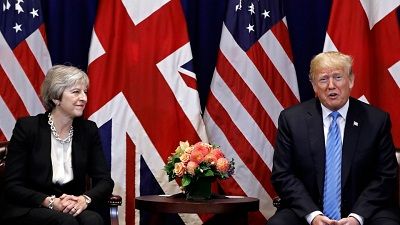
New Trump Administration’s Trade Negotiations: What’s Next?
The Trump administration has formally notified Congress that it intends to negotiate trade agreements with the European Union, United Kingdom, and Japan. The Scholl Chair explores what the next steps for each party are and where the negotiations could lead.

What Goes Around Comes Around
Does the U.S.-Mexico-Canada Agreement signal a return to the days of managed trade? If so, is there any merit to that trade policy approach?
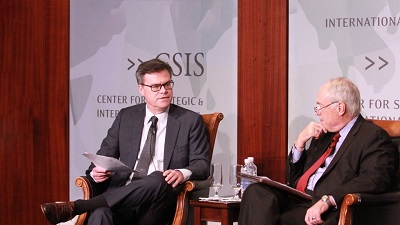
Fixing the WTO
CSIS was privileged last week to host the U.S. ambassador to the World Trade Organization (WTO), Dennis Shea, for a public conversation. Ambassador Shea did not make front page news, no doubt much to his relief. No surprise there. Even in the best of circumstances, the WTO rarely makes the front page, and we are hardly in the best of circumstances. He did, however, do an excellent job of both defending and explaining the administration's policy toward the organization.

Services: How to Boost Trade and Shrink the Deficit at the Same Time
Chances are you do not work in agriculture or in manufacturing. In fact, four out of five jobs in the United States are in “services,” and 75 percent of U.S. GDP is derived from services.
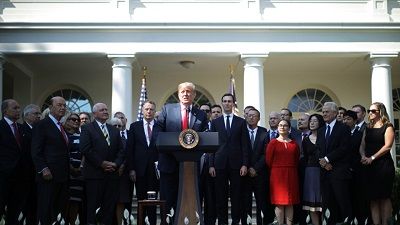
No to the Village People, but Yes to ‘Bait-and-Switch’?
The completion of USMCA negotiations, however, has allowed attention to turn to other trade issues. While talks with the European and Japan are looming, China is the topic _du jour_, especially in the wake of the vice president’s speech last week. And there, I think, we are witnessing the unfolding of a time-tested tactic—"bait-and-switch”—promising one thing and delivering something else, usually of lesser value.
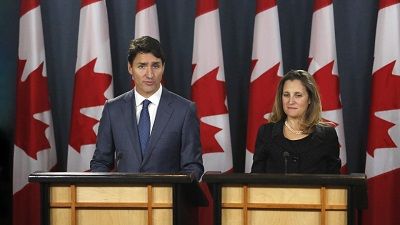
From NAFTA to USMCA: What’s New and What’s Next?
After over a year of negotiations and just hours before an October 1 deadline, the Trump administration and government of Canadian Prime Minister Justin Trudeau managed to reach a deal to bring Canada into a new trilateral free trade agreement with Mexico to replace the 25-year-old North American Free Trade Agreement (NAFTA).
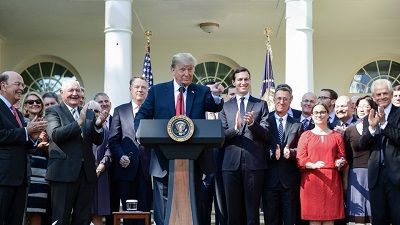
Exit NAFTA, Enter USMCA
It is somewhat comforting to see that one of the worst things you can say about U.S.-Mexico-Canada Agreement (USMCA) is that the new trade agreement replaces a term that everyone knows and can say with an unpronounceable acronym. How do you say USMCA? Even NAFTA 2.0 would sound better. Hard to pronounce though it may be, if that’s the worst one can say about the agreement, then the business communities in all three countries dodged a serious bullet.
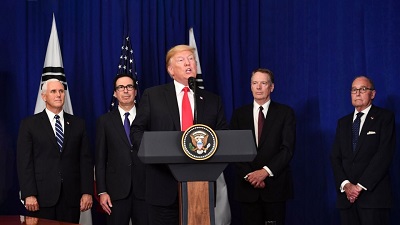
Why Both Republicans and Democrats are Grumpy about Trade
Some interesting poll data has emerged over the past couple of weeks that merits some discussion. As usual, some of the most useful comes from the Pew Research Center and the intrepid Bruce Stokes, who has spent a lot of time over the past six years trying to understand what the American people think about trade and how that is changing.
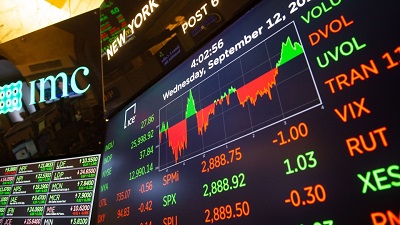
Reframing the Trade Debate
There is no question that the president has reframed the debate on trade in the United States. As I have said many times, after 30 years below the fold in the business section (for you, millennials, that’s a reference to old-fashioned newspapers), trade is now on the front page every day. As it turns out, that has had both good and bad consequences.

Aren’t We All Free Traders?
Most politicians say they are free traders, but disagree over how to achieve free trade. The president's actions and statements have called into question whether he is indeed a free trader, and whether his method of making trade freer will pay off.
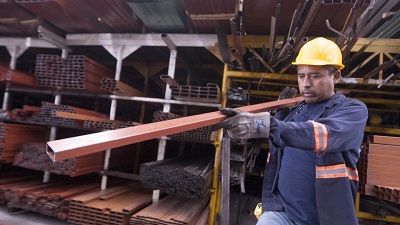
Steel and Aluminum Tariffs: A Push and Pull between the President and Congress
President Trump’s decision to impose steel and aluminum tariffs and his threat to put tariffs on automobiles and parts under Section 232 of the Trade Expansion Act of 1962 have generated anxiety on Capitol Hill. Lawmakers have expressed concern about the economic impact of the tariffs as well as the legal foundation for them. Some have suggested reining in the president's tariff authority. What has been proposed, what are the chances meaningful action is taken, and is it a good idea for Congress to take back trade authority from the president?
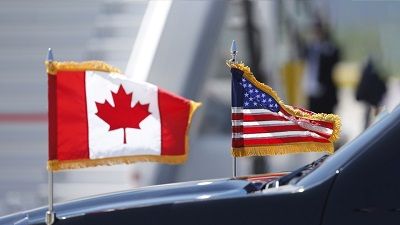
So, What Just Happened?
What happened with NAFTA last week? The United States and Canada did not reach agreement; the administration notified Congress anyway of its intent to sign an agreement, at least with Mexico and perhaps with Canada later; the parties said surprisingly nice things about each other (except for our president who was rude as usual) and agreed to meet again this week. So, what does it all mean?

Westward Ho!
With our unemployment rate low, employers are having more and more difficulty filling jobs. A more mobile working-age population would partially address that problem. So, why don’t we move as much as we used to?
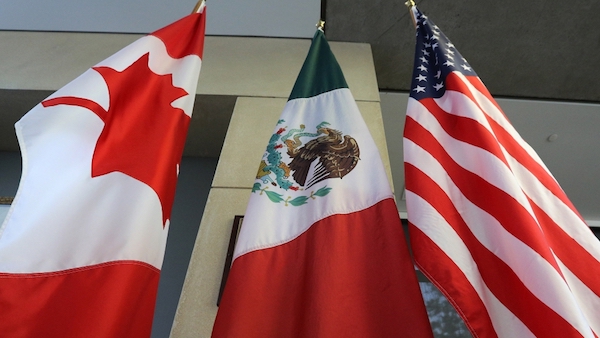
NAFTA or U.S.-Mexico Trade Agreement?
What’s in the U.S.-Mexico agreement and what issues still have to be worked out between the three countries? Is the U.S. headed for a breakup with its northern neighbor or a closer relationship?
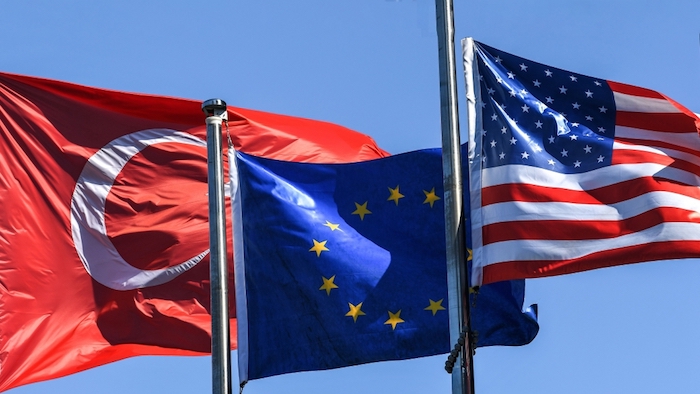
Talking Turkey and Taking Stock
This week’s title and topic are just too easy. Indeed, Scott and I used the first half of it last week for our Trade Guys podcast. The case of Turkey does, however, demand a bit more attention than Scott and I gave it. This column will look at it primarily from a trade and geopolitical perspective.
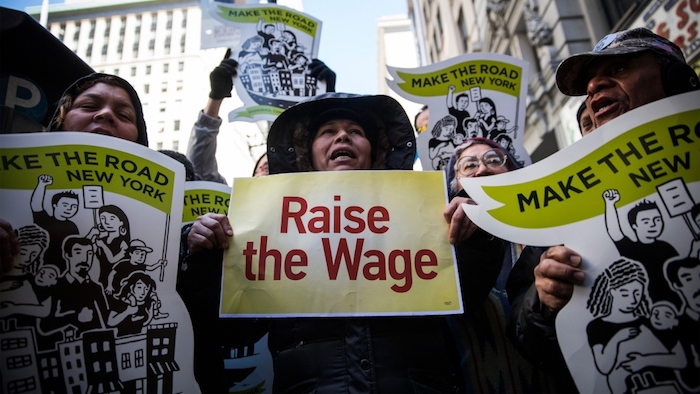
Trade and Wages
One eternal element of the debate on trade policy is blame. Bad things are happening in our economy. Is trade responsible for them? Trade skeptics say “yes”—trade promotes a race to the bottom. Free traders say “no”—trade is a scapegoat for a lot of other things that are going on.
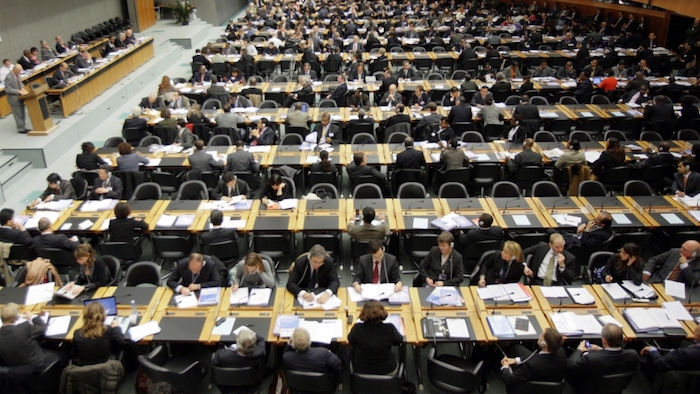
Whither, or Wither, WTO?
WTO negotiations have all but ground to a halt while countries flout their obligations. U.S. tariffs on steel, aluminum, and imports from China have put additional pressure on the WTO’s rules and relevancy.
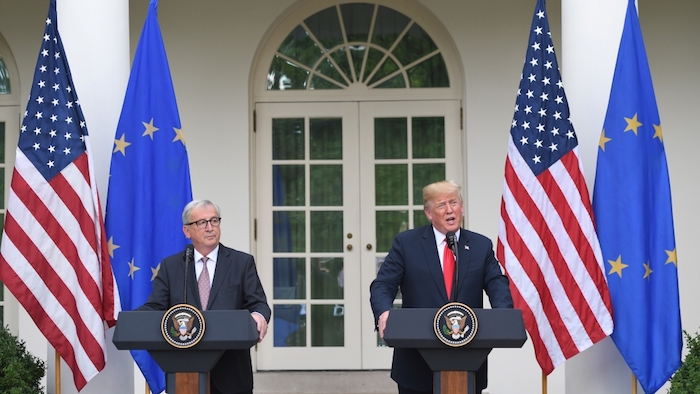
Zero Tariffs, Zero Barriers, Zero Subsidies: Is This Even Possible?
The U.S. and European Union have agreed to negotiate towards “zero tariffs, zero non-tariff barriers, and zero subsidies on non-auto industrial goods.” What does that really mean, and is it possible?
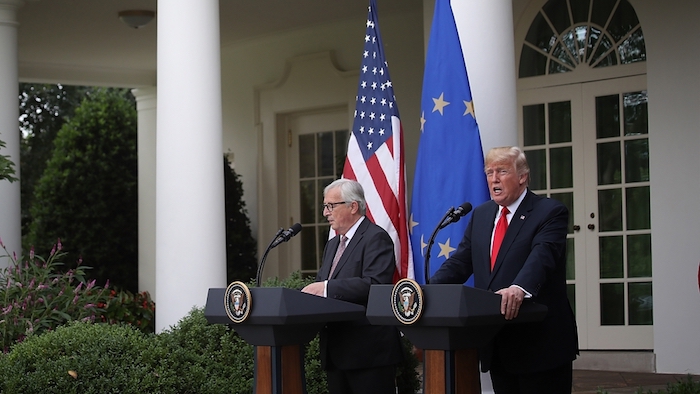
The Emperor’s New Clothes
President Trump stormed into the Oval Office promising to tear up old trade deals and replace them with improved agreements. But so far, he has little to show for his fiery rhetoric about Americans being ripped off.
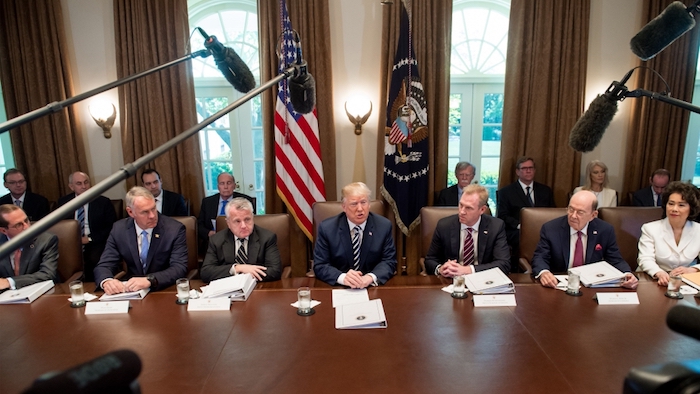
Is Anybody Fighting Back?
As tariffs begin to stack up and the prospect of higher prices for consumers comes hurtling closer, the question of “Why isn’t anybody doing anything about” gets asked more and more. There is more than one answer to that question.
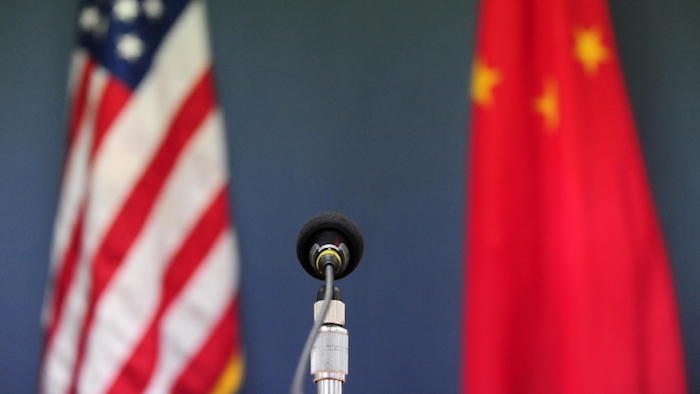
China: The Dust Never Settles
The U.S.-China trade battle appears to have no end in sight. The Trump administration appears to want it all from China: market access concessions, a reduction in the trade deficit, and significant internal Chinese reforms.
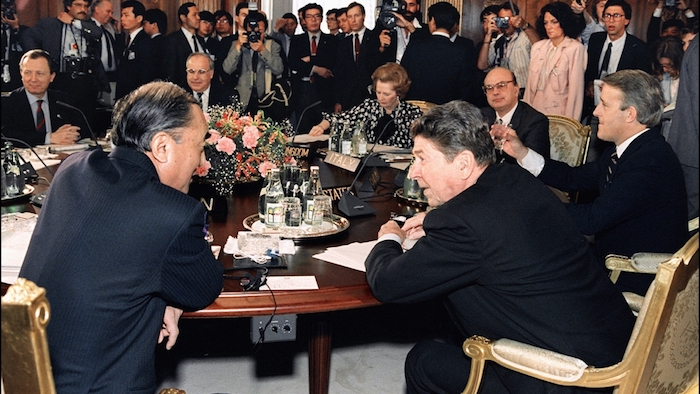
Lost in the 1980s on Trade
Robert Lighthizer, the U.S. Trade Representative, is dusting off his playbook from the 80s. The trade policy veteran, who served as a deputy in the Reagan administration, is seeking negotiated steel and aluminum quotas and has made his skepticism of the World Trade Organization no secret.